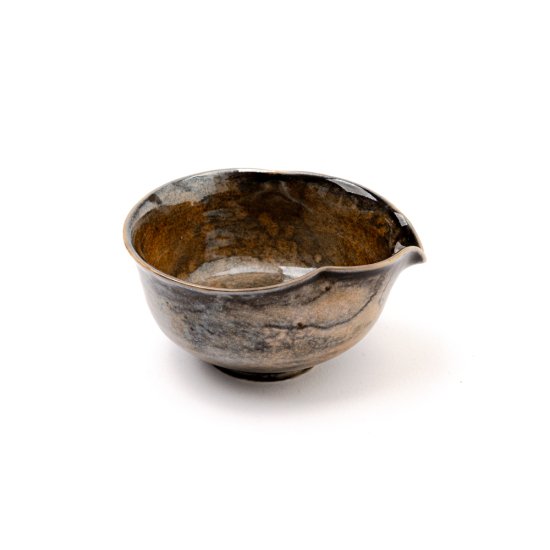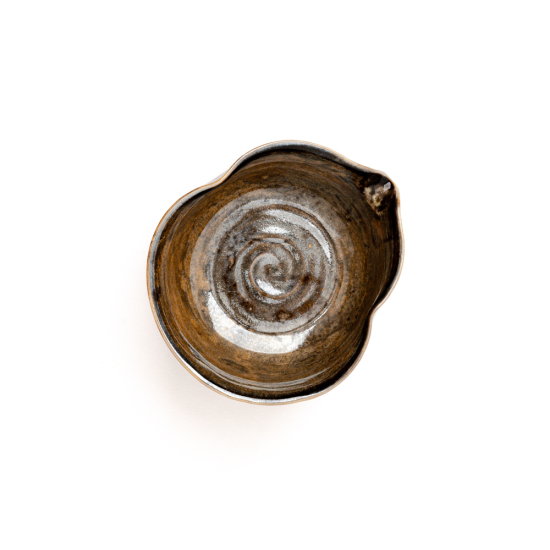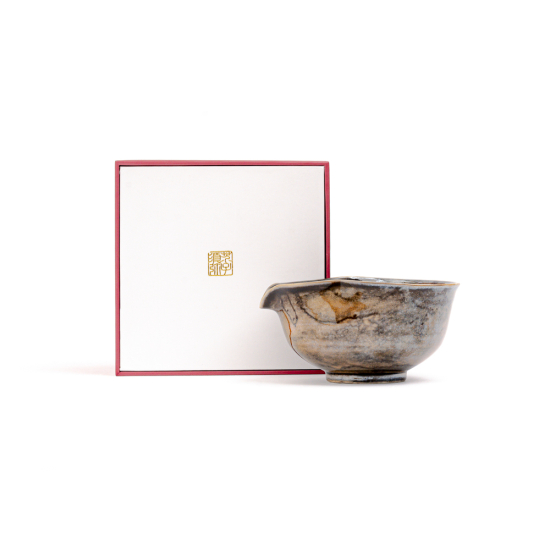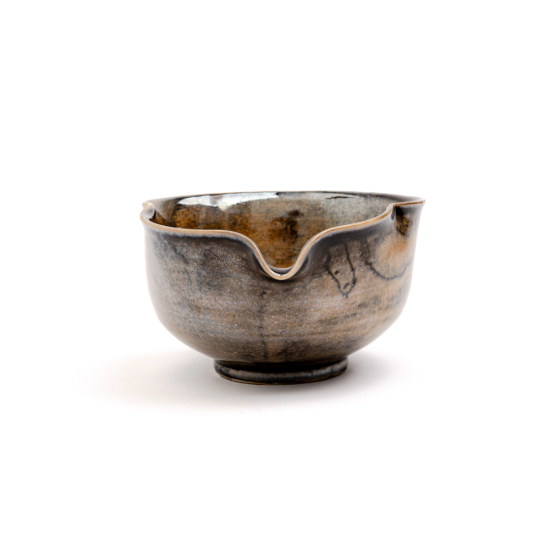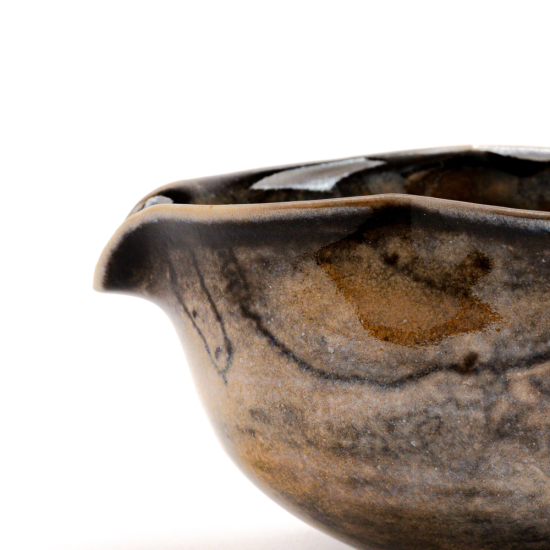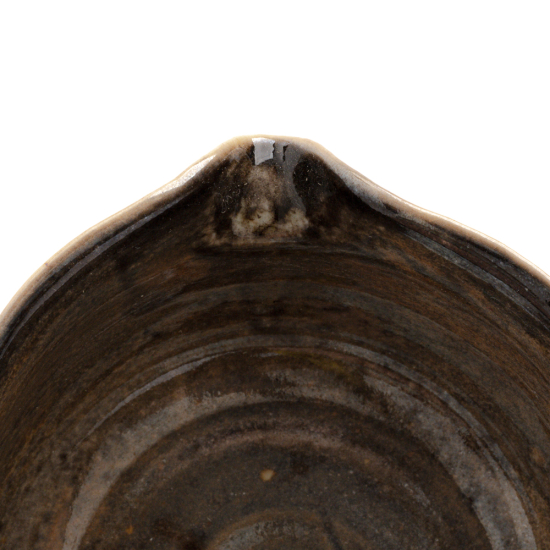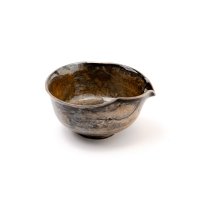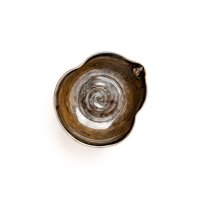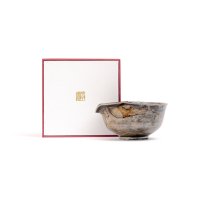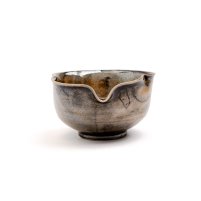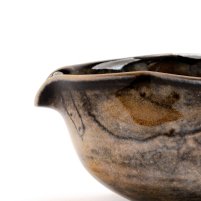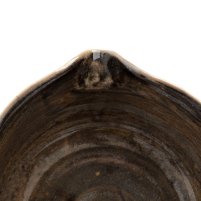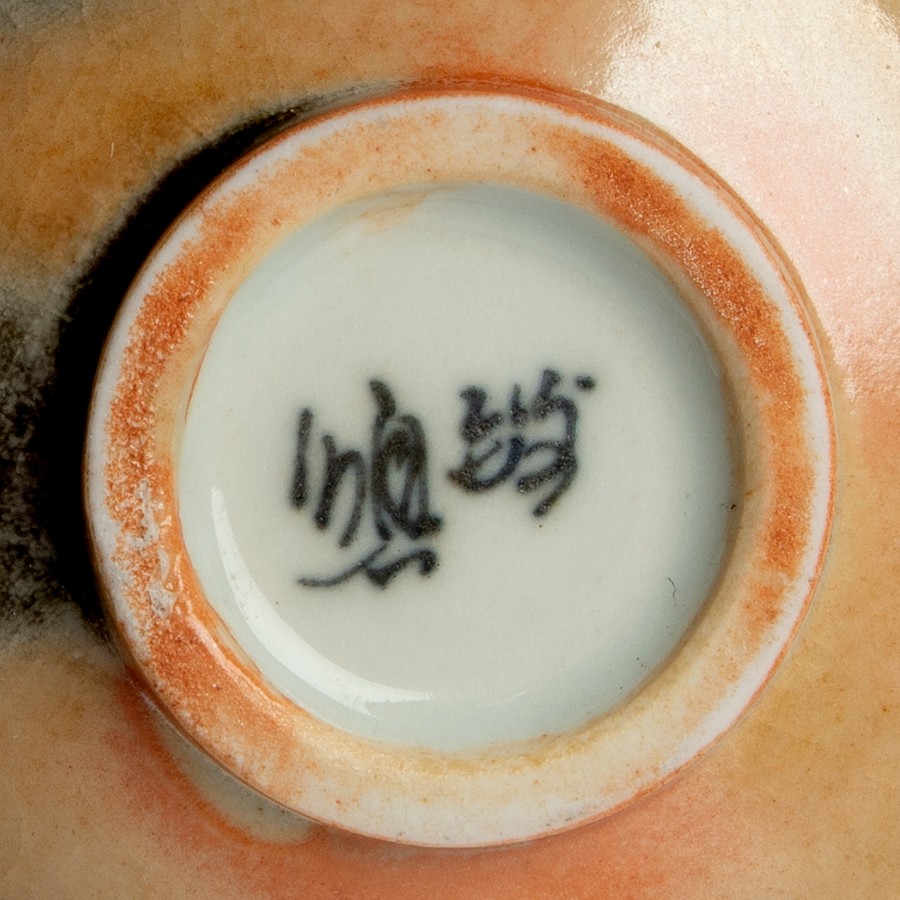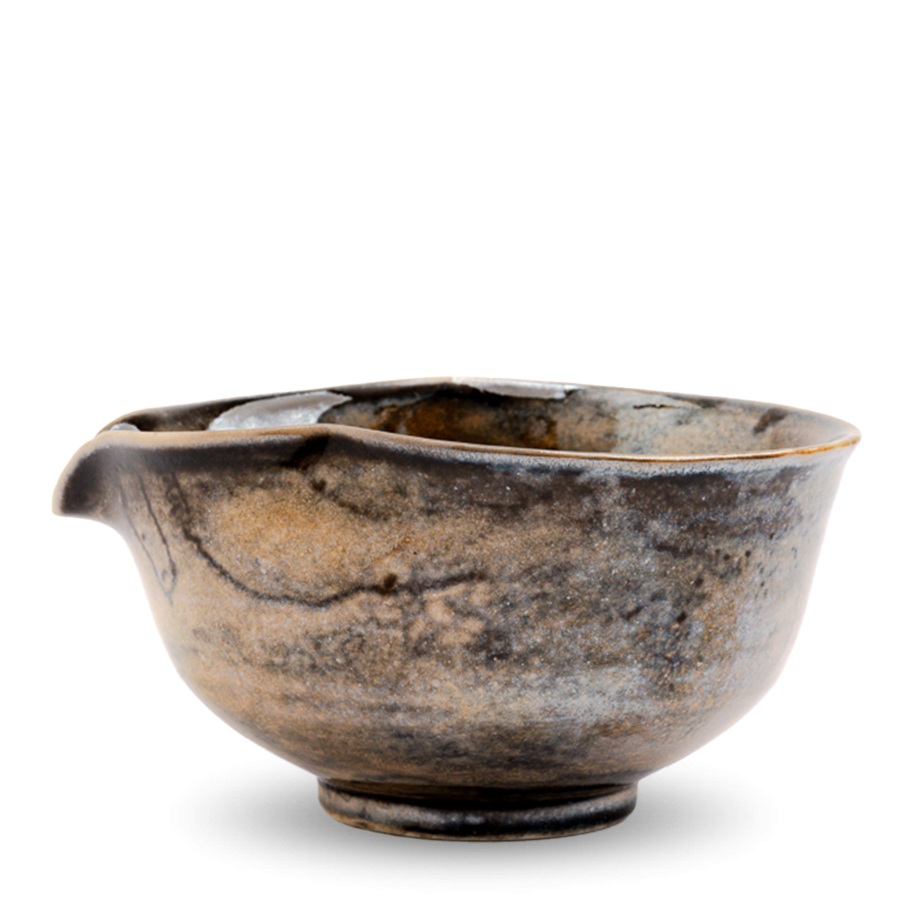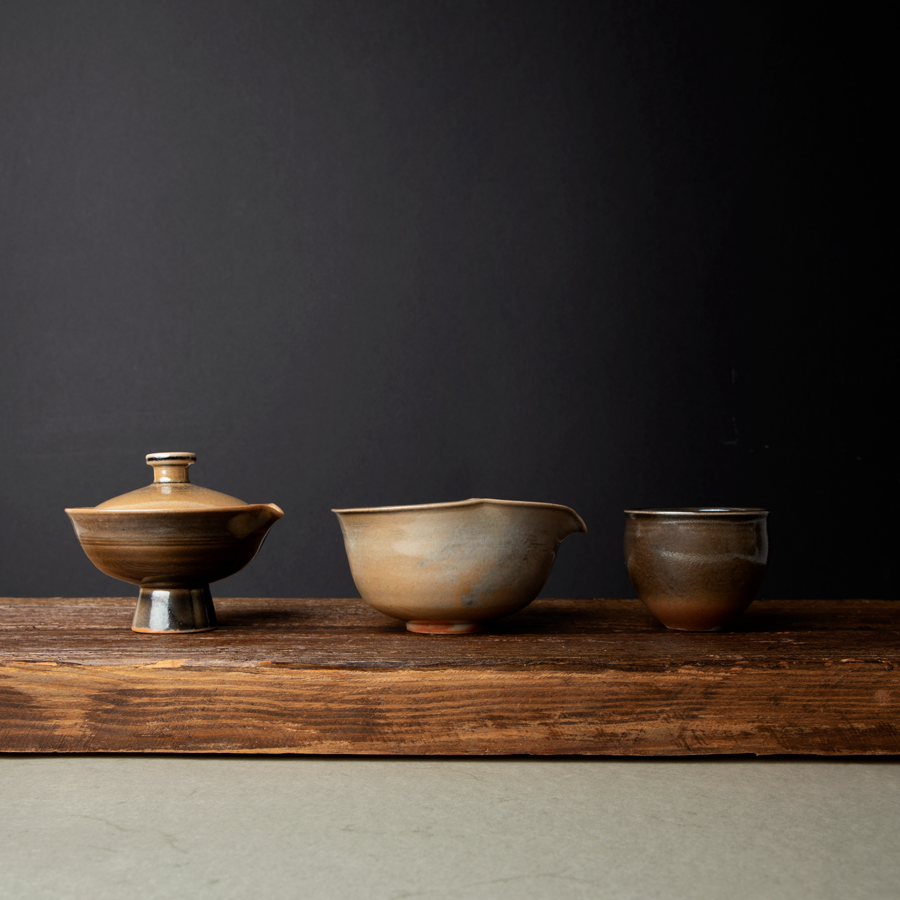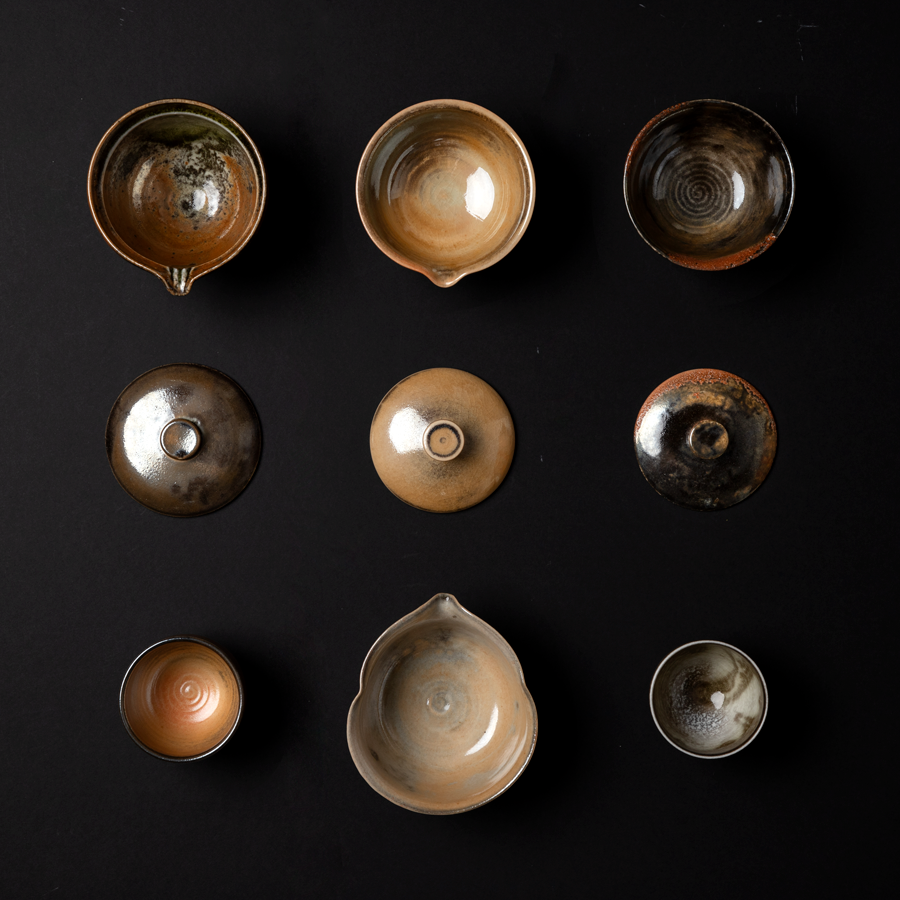Gently hand wash with warm water and a soft cloth or sponge, using a mild washing-up liquid as necessary. Do not put in dishwasher or microwave.
Gong Dao Bei
Xu Ni
Jiang Liqiang
SKU
7257
Yoshi En has recently grown out of Sunday Natural to become an independent premium tea store. As part of this transition, some products may still be shipped in Sunday Natural packaging.
Touched by the flame, this stunning wood-fired Gong Dao Bei pitcher is baked for over sixty hours and glazed with soda to achieve an organic, one-of-a-kind surface finish reminiscent of splash marks in traditional Chinese ink paintings. This masterpiece is part of the Xu Ni (須彌) collection named after the sacred Buddhist five-peaked mountain.
| Product | Gong Dao Bei pitcher, beige and grey |
| Maker | Jiang Liqiang |
| Origin | Jingdezhen, Jiangxi, China |
| Dimensions | L12.5cm x W10.8cm x H6.1cm, foot Ø4.1cm |
| Volume | 230ml |
| Weight | 160g |
| Material | Porcelain |
| Kiln temperature | 1200-1230°C |
| Artist's mark | Signature on base |
| Packaging | Gift box |
Special Note: The finish on wood- and soda-fired ceramics is unpredictable, therefore colour, glazing and texture may vary considerably to the product shown here – please enjoy the uniqueness of each piece!
In stock



